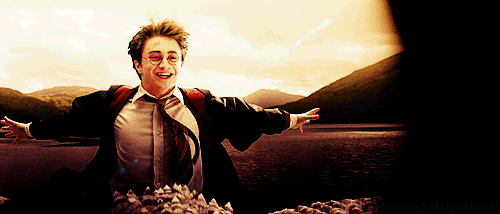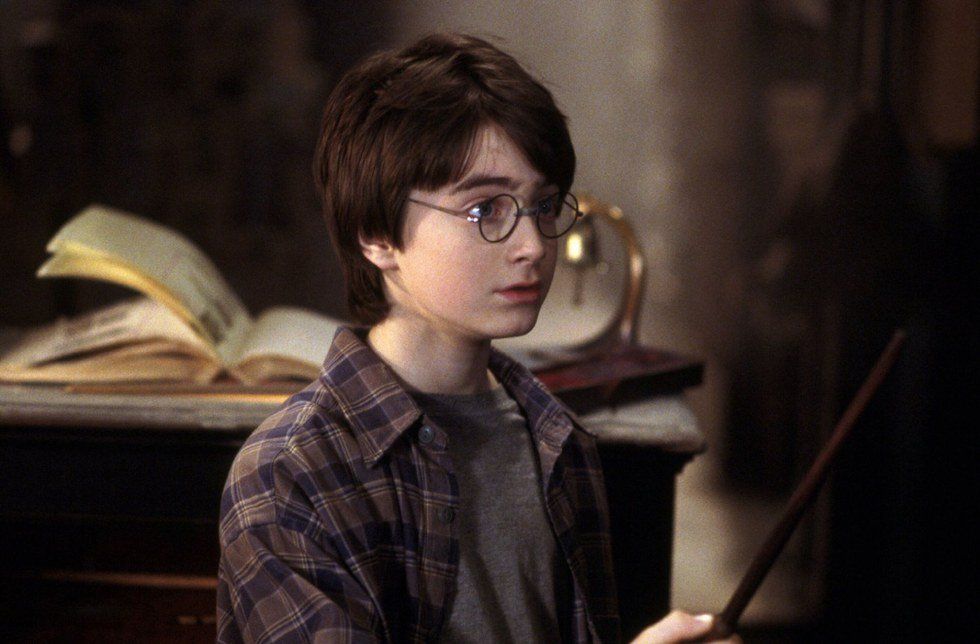Harry Potter. A beloved and household name, the legend of everyone’s favorite wizard has influenced our generation beyond fathom. Surely not everyone can take down disembodied spirits, giant spiders, or a noseless man who claims to be a snake whisperer. No matter what, Harry’s magic could always be counted on to save the day. However, readers often forget that Harry also dwelled within a non-magical world as well.
Number Four Privet Drive was supposed to be a safe-haven. Instead, Harry suffered improper treatment from the Dursleys. He was forced to mow the lawn, wash the dishes, and cook meals for a family of three. He was cuffed about the ears, called derogatory names, and deprived meals should he dare to share an opinion. Harry Potter, the Boy Who Lived, was also the Boy Who Suffered. Not once did he speak about the treatment he received at home. Even in the literary world, Harry’s voice was never heard. What does this say about the population of similar children overall?
Thus is my concern: the factors of child abuse are overlooked. Over 6 million children every year suffer according to the US Department of Health and Human Services. There are 75 million children in the United States. What percentage of that does not cry for help? This treatment is often paraphrased: If a child shows that they are in pain, they only MIGHT be abused. However, detriments to a child are due to horrible combinations of factors. But before we lose faith in the strength of our own magic, we still have the power of understanding to improve the situation.
Once I turned 11, I fully expected to receive a letter of acceptance into the infamous school of witchcraft and wizardry. It’s not like I faked a prescription or anything so I could get glasses like Harry’s… and my mom probably enjoyed the short stint in which I offered to fly- *ahem* sweep with the broom about the house. Who needs a creaky, old fictional castle anyways? Well, if you’ve ever been to a high school english class, you’ve probably had to annotate countless novels for symbols and motifs. Hogwarts reflects much more than mystery. It’s an environment that showcases just a few of the prominent forms abuse assumes. Scars aren’t always left in the shape of a hand print, but they are still scars nonetheless. Complete undermining and derogatory insults can impact the human character just as much as physical abrasion.
William J. Watson, MD at St. Michael’s Hospital of Pediatric Medicine, states that, “A child’s behavior is an outward manifestation of inner stability and security.”
What this means is that if you take the flower out of the sunlight, it will wither. Nurturing any living being requires patience, understanding, and compassion. Oftentimes, not every person within the alleged “safeplace” at school has a mindset dedicated to the well-being of students. Another example we can’t afford to skip is something that dates back to pre-Jesus time.
Similar to the way Dumbledore ignored Harry’s home environment, Snape degraded Hermione, and really… everyone towards Neville; the adults in the trio’s lives failed to realize the true potential of the children around them. Ignoring the true potential of any individual is emotionally stunting. Truth to that statement can be drawn unsurprisingly from the media. In particular, Kesha. Seriously. Kesha, a minor at the time, took two years off the road in order to recuperate from emotional abuse and ignorance directly from her manager. Few people realize that the constant stream of insults such as “fat cow” and “talentless singer” drove her to the brink of death. Only later when she became a hot media topic did she speak out on her abuse. The alleged sexual abuse she suffered at the hands of her producer prevented her from taking action. Because no one could recognize the signs of her trauma, she was forced to deal with it alone.
However, that's not the only type of abuse we are exposed to. If I may digress, let's delve a but into something that people have mixed feelings about: children. Aside from all the charms, taking care of a child is similar to taking a NEWT or the SAT or ACT. There’s many different ways to accomplish the task efficiently, effectively, and lovingly. However, a factor such as divorce would stress any parent. Where does all this pent up anger end up? Lashed out on the only other individuals in the house. Expectations are raised impossibly high while tempers remain at an all time low. This is one such example I’m specifically highlighting because plenty of cultures expose their children to the idea that this treatment is okay. Our generation has yet to address this gross cause and effect system.
Famed writer, Oscar Wilde, perfectly characterizes this victim vs victimizer relationship. “Children begin by loving their parents; after a time they judge them; rarely, if ever, do they forgive them.”
Inherently, children can’t help but love their parents from a young age. Watch young ducklings hatch and wait if they see you before their mother. They’ll waddle towards you and mimic your mannerisms. According to Merriam-Webster dictionary, the act of marking or being marked by is known as “imprinting”. And you see, the thing about imprinting is that you never forget that first glimpse. The sooner a child is exposed to violence, the more inclined they are to carry on a vicious cycle throughout their lives.
So what can we do?
The inclusion of seminars or assemblies at school about child abuse will reach more than we know. And those few minds will take the message to heart. Within their swirling compassion, a desire to end the cycle will grow. The brightest correlation of sincerity won’t always summon a phoenix with an undefeatable sword, but we are armed with intangible weapons: the magics known as communication and media. Oftentimes, that’s what will make all the difference. Believe it or not, I used to be a shy and very reserved child. I had learned from a young age that my opinion did not matter should it not pertain to a perceived perfection. I was starved for kind words. And once the horrible throes of puberty gripped me, there was no holding back on the onslaught of fat-shaming or jelly-jigglings. I became so self-conscious that the only thing I permitted to touch me was an innate sense hatred. Why had I been made this way? Why did I have to suffer? Why am I here…? The magic of a compassionate teacher fished me out of the cage I was unwillingly put in. I re-learnt the ability to love, to live. But most importantly, I regained my magic. Today, I know how to stop any monster right in its path, and protect others as well. Hopefully, you’ve gathered enough experience to take that stance and lead the world in a better direction as well.
The best thing about a series finale is that there is almost always guaranteed an epilogue. It’s the perfect ribbon on the package that you’ve either binge-read or watched. Today, it’s the ending to a journey of understanding. Hogwarts kindly opened its age-old traditions to us and we were able to identify some of the lesser known horrors. The pain of a child is multi-faceted and complex, full of moving pictures and perspectives. We focused on the gross cycle that passes the dark magic along and got in touch with our inner revolutionary leader to ignite compassion. We helped the Boy Who Suffered become the Boy Who Was Heard. Just like Harry Potter’s infamous scar, the evidence of physical pain leaves it mark, but if healed with love, is nothing more than a distant reminder of a successful journey. Hopefully with the magic we’ve made today, the lightning scars will burn no more, and all will be well.




















